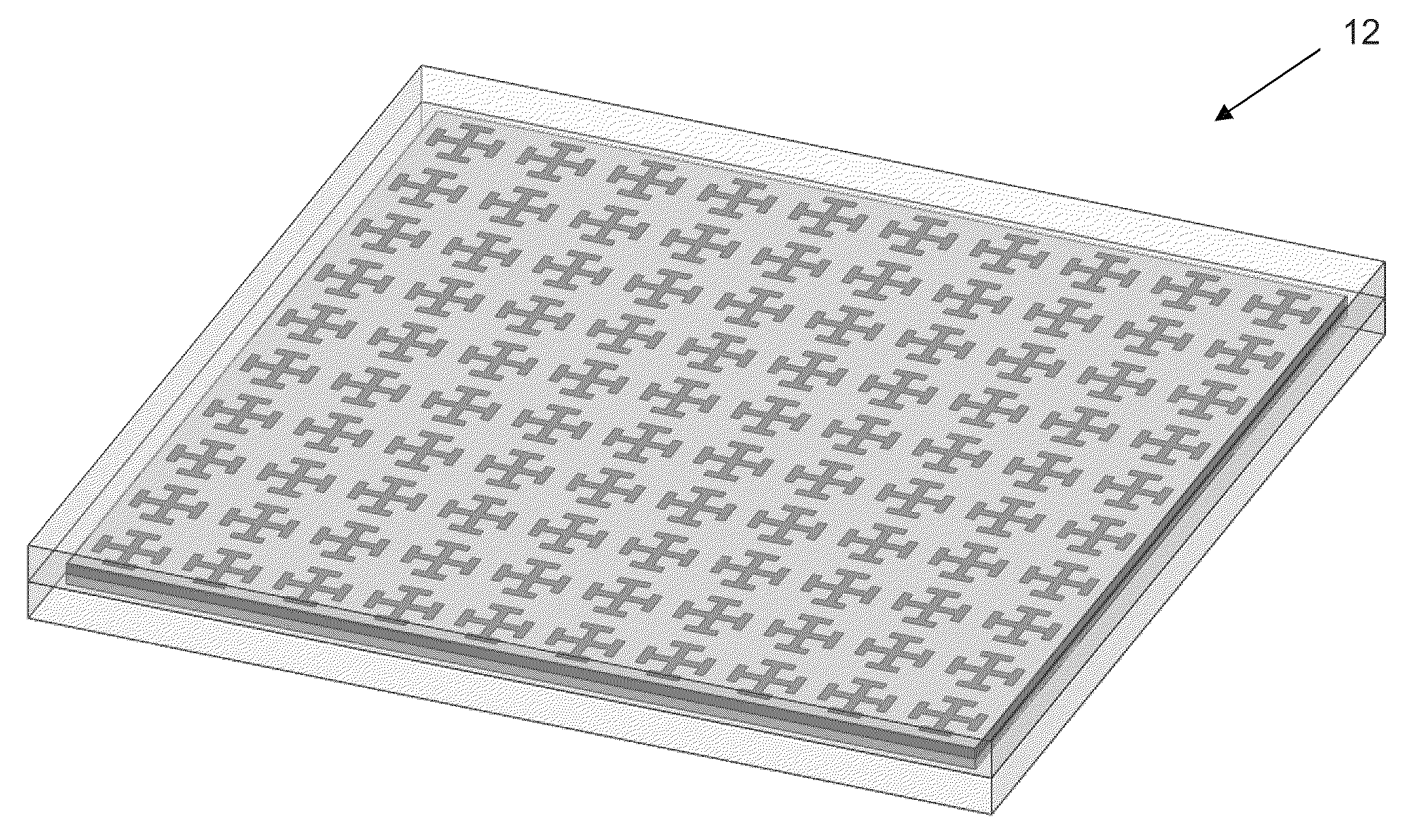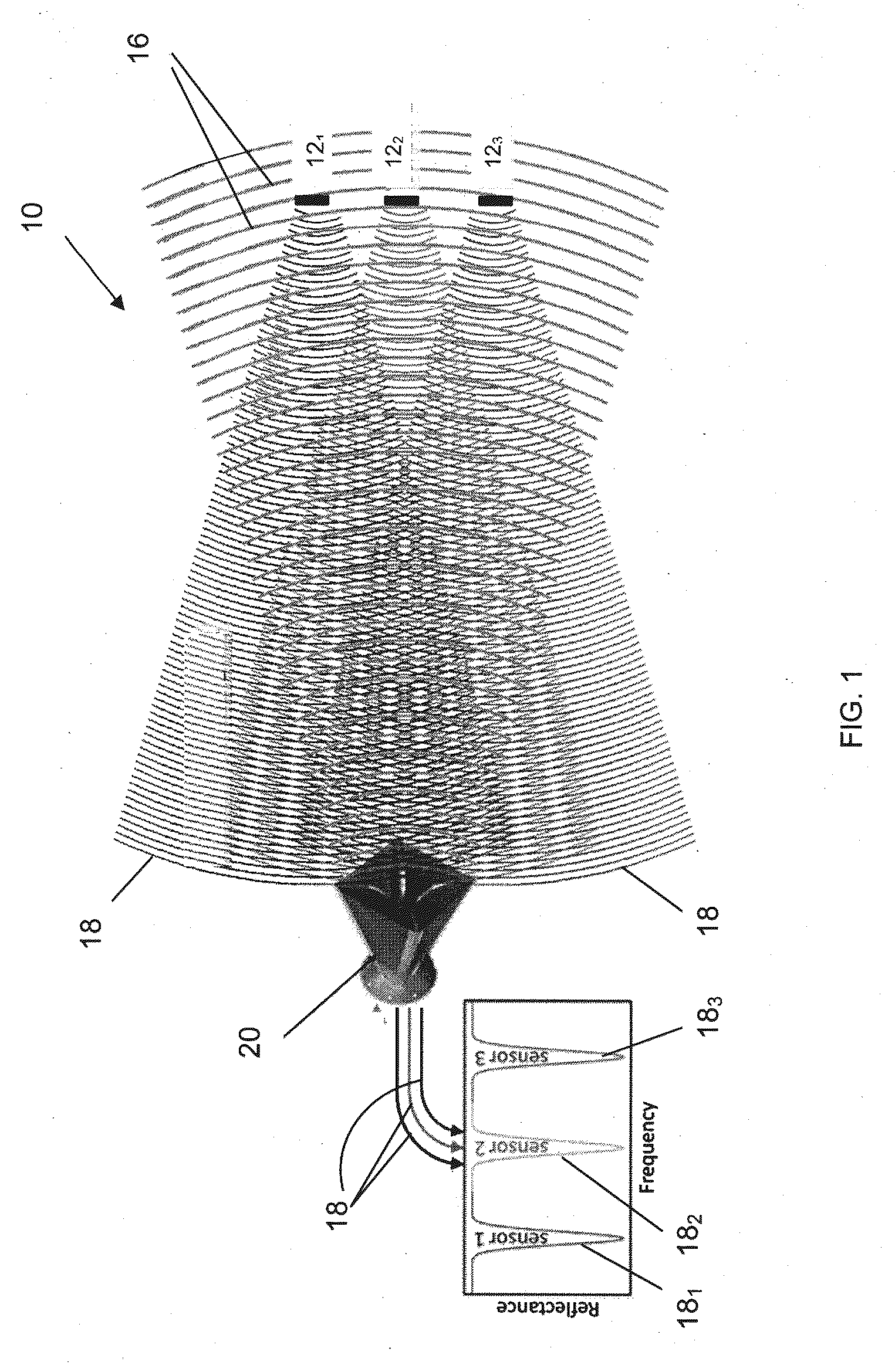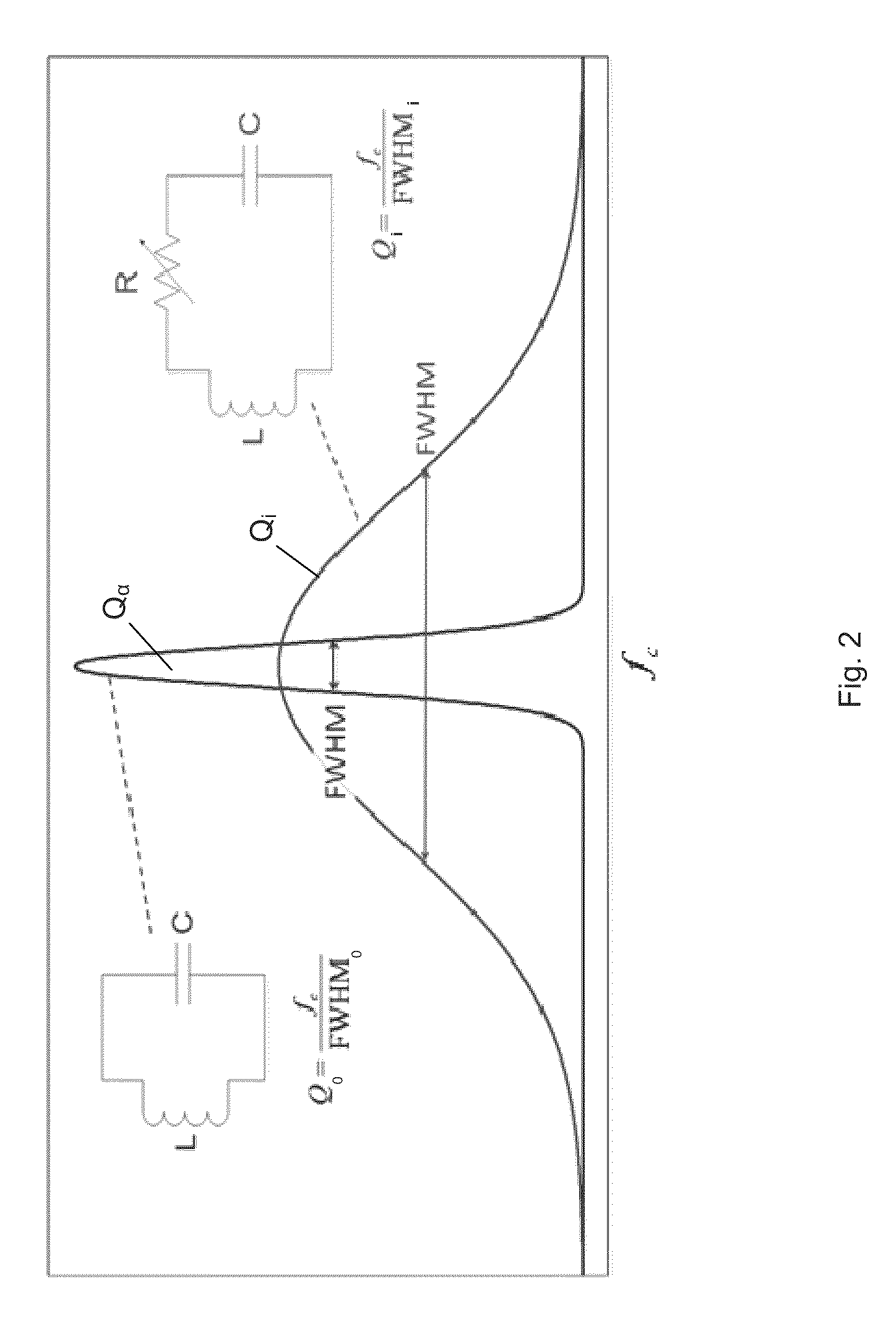Ultra-High Temperature Distributed Wireless Sensors
a wireless sensor and ultra-high temperature technology, applied in the field of sensors, can solve the problems of difficult efficiency of gasification plant operation, complex manufacturing of built-in electrical components, and difficulty in efficient operation of temperature sensors such as thermocouples, so as to improve the ability to tolerate thermal expansion and contraction, and protect from extremely high temperature and corrosive environment.
- Summary
- Abstract
- Description
- Claims
- Application Information
AI Technical Summary
Benefits of technology
Problems solved by technology
Method used
Image
Examples
Embodiment Construction
[0022]In one exemplary embodiment, the present invention comprises a wireless, remote sensor system 10 for measuring temperatures at multiple locations, particularly in high-temperature or inhospitable environments described above, in which a broadband interrogating source, preferably but not limited to radio frequency range (RF), interrogates an array of passive wireless sensors 12i distributed throughout a chamber such as a coal gasification chamber, as illustrated in FIG. 1. Three sensors 121, 122, and 123 are shown; however, the invention is not limited to any number of sensors. Each wireless, remote temperature sensor 12 comprises a temperature sensitive element and a frequency selective element, preferably a metamaterial, and the frequency selective element is selected to respond or scatter electromagnetic energy at or near its resonance frequency. As used herein, metamaterial includes man-made or engineered materials that generally gain their properties from their structure r...
PUM
 Login to View More
Login to View More Abstract
Description
Claims
Application Information
 Login to View More
Login to View More - R&D
- Intellectual Property
- Life Sciences
- Materials
- Tech Scout
- Unparalleled Data Quality
- Higher Quality Content
- 60% Fewer Hallucinations
Browse by: Latest US Patents, China's latest patents, Technical Efficacy Thesaurus, Application Domain, Technology Topic, Popular Technical Reports.
© 2025 PatSnap. All rights reserved.Legal|Privacy policy|Modern Slavery Act Transparency Statement|Sitemap|About US| Contact US: help@patsnap.com



